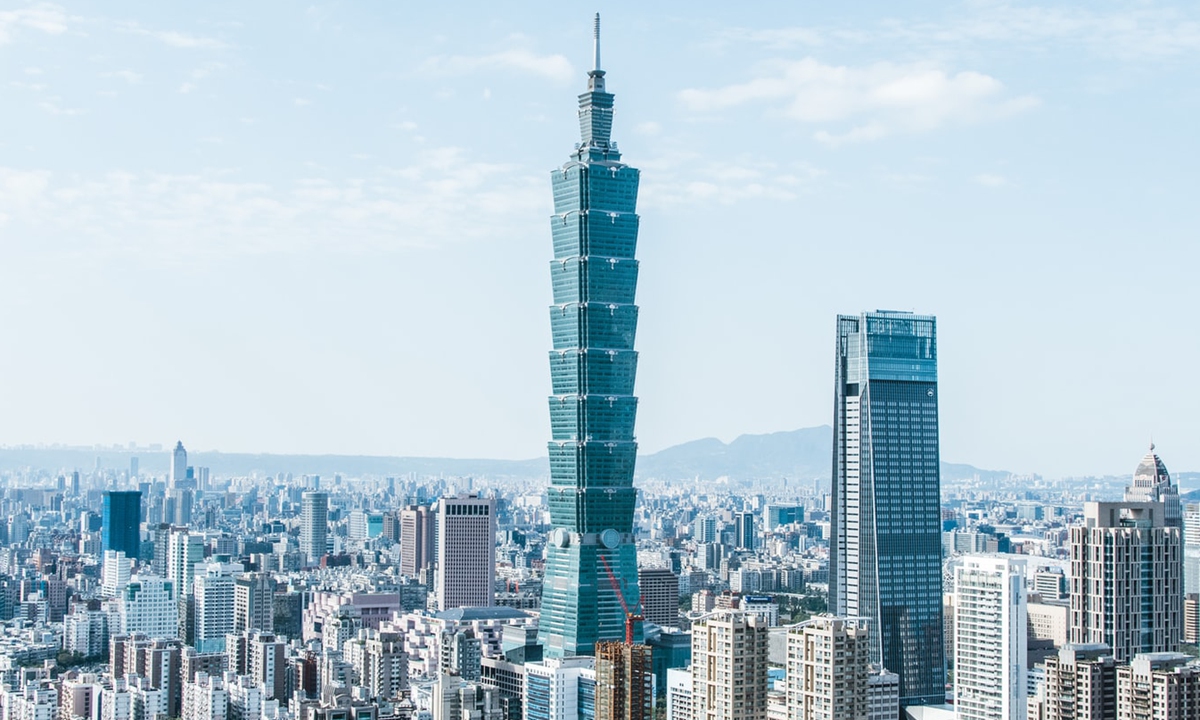
Taiwan Photo: Unsplash
This is supposed to be the time for family reunion and Spring Festival shopping as the grandest festival for Chinese people is less than a week away. However, Taiwan residents are facing an acute egg shortage and rising prices.
Taiwan's daily egg demand is about 22 million, but it currently supplies just over 18 million eggs, a shortfall of 4 million a day, Taiwan-based media reported.
Hundreds of restaurateurs in Taiwan have taken to social networking sites to complain that they can't get eggs, while many homemakers claiming they failed to find any eggs at supermarket even they went to the supermarket several times a week.
The price of eggs has risen from NT $46 ($1.66) per kilo before the pandemic to NT $70. If freight and loss are added, according to Taiwan's local egg market table, the egg price in the island has skyrocketed to NT $ 88 per kilo. The Global Times found that eggs cost 11 yuan ($1.7) a kilo in a market located in Chaoyang district, Beijing.
The last egg shortage occurred in Taiwan in January 2019, when the island imported 1.4 million eggs from US and Japan.
Some Taiwan-based observers said the egg shortage has been caused by multiple reasons including the impact of avian flu, climate instability, and rising international prices for materials. But the most important reason is the "freeze price order" issued by Taiwan authority which violates market mechanisms, resulting in no profit for egg farmers, meaning many have quit the business.
The egg shortage also came amid a time when Democratic Progressive Party (DPP) members are claiming that the DPP authority is mulling on lifting the ban on Fukushima food imports, potentially even before Spring Festival, as they believe there is a public basis to do so after the anti-ractopamine pork referendum became void.
Egg production and supply are plentiful on the mainland, and the proximity to the island means lower transport and time costs, Wang Jianmin, a senior cross-Straits expert at Minnan Normal University, told the Global Times on Friday.
However, due to political reasons, the Taiwan authority has imposed strict restrictions on the import of agricultural products and materials from the mainland, Wang said, "more than 800 agricultural products, including eggs, have not been opened to the mainland."
Taiwan's agriculture authority said on Thursday that the island will import eggs from Australia and US for emergency use, but the shortage would only be relieved in April.
The fact that Taiwan is willing to increase costs rather than seek help from the near mainland shows that when dealing with issues concerning people's livelihood, Taiwan authority is more concerned with political interests than the welfare of ordinary people, Wang said.
In 2008, in the last two months of Chen Shui-bian's tenure, the last DPP leader, Taiwan authority made an exception by allowing imports of corn from the mainland to calm the price of feed for the island's livestock industry. A major incident at US ports disrupted Taiwan's corn imports, leading to a spike in domestic feed prices.
The Tsai Ing-wen authority should also consider asking for help from the mainland, which would be helpful to both the Taiwan public and businesses, Wang said.
Ironically, as Taiwan residents face serious quality of life issues, the official-run wine company announced that the first shipment of 6,000 bottles of Lithuania-imported rum will be sold for NT $600 ($21.6) each at 12 winery sales centers on February 1, the first day of the lunar New Year.
However, the same wine was sold for just 31 yuan ($4.8) on mainland e-commerce platforms. And the over-priced rum was mocked by local residents as "the taste of democracy."
"The DPP authority pays a high price to satisfy its illusory political interests, rather than taking care of the island's population… They will lose people's support for such an approach," Wang said.




